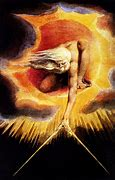Poul Anderson's Aeneans are creative in their religious imaginations:
"'I have heard of one seer who walks there now, who will call back the Old Shen from the stars. Will our dead then rise from the waters?"
-The Day Of Their Return, 12, p. 169.
This character does not propound a doctrine but does ask a question. See also the appropriately named Gabriel Stewart quoted here. Earlier, in A Circus of Hells, Djana had been equally creative. See:
When they turn from sf to fantasy, imaginative authors can then treat supernatural beings as literally existent. One of the most powerful, in my opinion, is the demon who proclaims that Armageddon has come unexpectedly:
"WE WILL DO WITHOUT THE ANTICHRIST. HE WAS NEVER NECESSARY. MEN HAVE ALWAYS LED THEMSELVES UNTO ME."
-James Blish, Black Easter (New York, 1977), XVII, p. 163.

5 comments:
I always liked the demon's response to the monk's cry: "But it is written that in that day you shall be cast down and forever bound!"
He replies:
OF COURSE. BEFORE EVERY WAR, BOTH SIDES PREDICT VICTORY. IT IS THE FIGHTING THAT COUNTS, NOT THE PROPAGANDA.
Blish tears up a lot of presuppositions.
Kaor, Mr. Stirling!
But Nicene Christians believe Satan was defeated when Christ rose from the dead.
Ad astra! Sean
Of course: different mythologies/theologies/beliefs leading to different works of fiction. One idea is that Satan was decisively defeated when Jesus successfully resisted the Temptations. That confirmed his Messiahship. Everything after that was a working out of the consequences. Milton wrote a trilogy -
PARADISE LOST: mankind loses grace;
PARADISE REGAINED (about the Temptations): Christ wins grace back;
SAMSON AGONISTES: mankind, i.e., Samson, accepts grace.
Admittedly, Samson was before Christ but theology is not chronology.
Kaor, Paul!
Yes, but Christians also believe the Old Testament was a foreshadowing or a preparation for Christ. So what you said about Samson still made sense.
Ad astra! Sean
Post a Comment